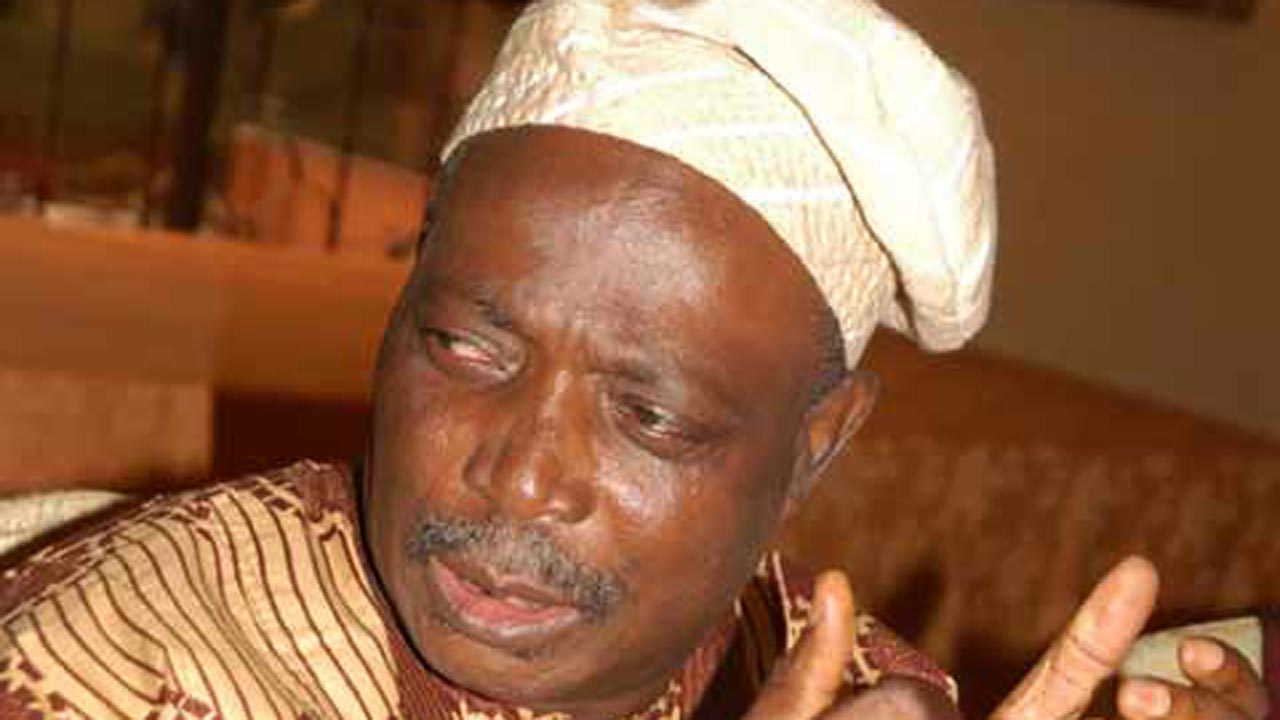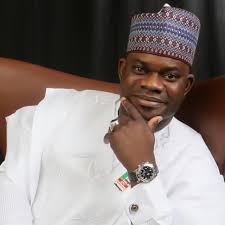I Paid N300m Legal Fees From Government Coffers To Reclaim Mandate, Ladoja Tells Court
A former Governor of Oyo State, Senator Rashidi Ladoja Tuesday told a Federal High Court in Lagos that he paid the lawyers who helped reclaim his mandate, after his purported impeachment in 2006, N300 million as legal fees from government coffers.
The former governor, who is being tried for an alleged N4.7 billion fraud by the Economic and Financial Crimes Commission (EFCC) gave the name of his lead counsel as Chief Wole Olanipekun.
Senator Ladoja, who was giving evidence in his own defence in the ten-year-old case, said he initially paid the lawyers N100 million but when he returned to office in December 2006, he paid the balance of the fees and also recovered his initial deposit from government coffers.
When he was asked by the prosecutor, Olabisi Oluwafemi, who authorised the payments? the former governor said, it was authorised by his government.
He insisted that the legal fees was not incurred in his personal capacity but in the defence of the office of the governor due to his purported impeachment, which was later upturned by the Supreme Court.
The EFCC is prosecuting Ladoja and his Commissioner for Finance, Waheed Akanbi on eight counts charge of laundering N4.7 billion and unlawful conversion of funds belonging to the Oyo State Government to their own.
They, however, pleaded not guilty to the charge.
Senator Ladoja, while being led in evidence by his counsel, Bolaji Onilela, also denied authorizing the sale of Oyo state government shares at discounted price.
He also claimed that the decision to sell the shares were taken by the State Executive Council upon his return to office on 11th December, 2006, following the nullification of his impeachment by the Supreme Court.
He also said that proceeds generated from the sale of the shares were deployed towards projects execution.
The former governor stated, “On our return to office, we found out that most of the items we had in our budget in 2006 were not touched. We were then looking for money and the second defendant, who was the commissioner of finance, was saddled with the responsibility of looking for the money. He then came up with the idea of selling the shares.
“We later called functionaries at the Ministry of Commerce but they told us that the shares have been tied down to the purchase of rice. We then found a way of freeing the shares and at that point, the second defendant made his submissions to the State Executive Council on the sale of the shares and it was approved.
“A memo was later raised by the commissioner of finance and I approved it. I had no dealings with either the Portfolio Manager, Fountain Securities Ltd or its Managing Director, Chief Kola Daisi”, Ladoja claimed.
He maintained that he was not privy to the total amount of money that was realized from the sale of shares and that he did not personally benefit from it.
He said: “It is for the officials to follow-up with the revenue, my job stopped at the point of approving the sale of the shares. The revenue generated from the sale of the shares were expended on certain projects”.
Recalling the events that led to his impeachment on 3rd January, 2018, Ladoja said: “the group that called for my impeachment was led by the late Alhaji Lamidi Adedibu.
“The politician believed he has a right to security votes because he is securing the state but I thought otherwise. It was a running battle until I later found out that the presidency was involved. Some members of the State House of Assembly were promised a lot of things by Adedibu. I later got to know that my Deputy was also involved in the plot to remove me”.
He added that after his impeachment, one of his aides, Chief Adewale Atanda, advised him that he should leave Ibadan for Lagos to avoid any threat to his life.
He said he only stayed in his house for just two weeks before he relocated to a ‘safe house’ provided for him by Asiwaju Bola Ahmed Tinubu, who was then the Lagos State Governor.
“I had to find a place to be meeting my lawyers and supporters. So, Chief Atanda suggested that we should use a space in his hotel, Heritage Court and Inns.
“Throughout my stay in the hotel, I was responsible for the entertainment of my guests and there was no time the place was closed to public”, he said.
Upon cross-examination by Oluwafemi, the former governor said he declared his assets on assumption of office in 2003.
He added that the sold shares were purchased during his tenure as governor of Oyo state.
Justice Idris has fixed 18th January, 2019, for parties to adopt their written addresses.
The judge who has since been elevated to the Appeal Court told the lawyers in the case that the fiat given him by the Chief Justice of Nigeria to come back from the Appeal Court to the High Court to hear the matter would elapse on Friday.
He also expressed optimism that the fiat may be extended to enable him take the final addresses and subsequently deliver judgment in the matter, failing which the matter would have to start afresh before another judge.




